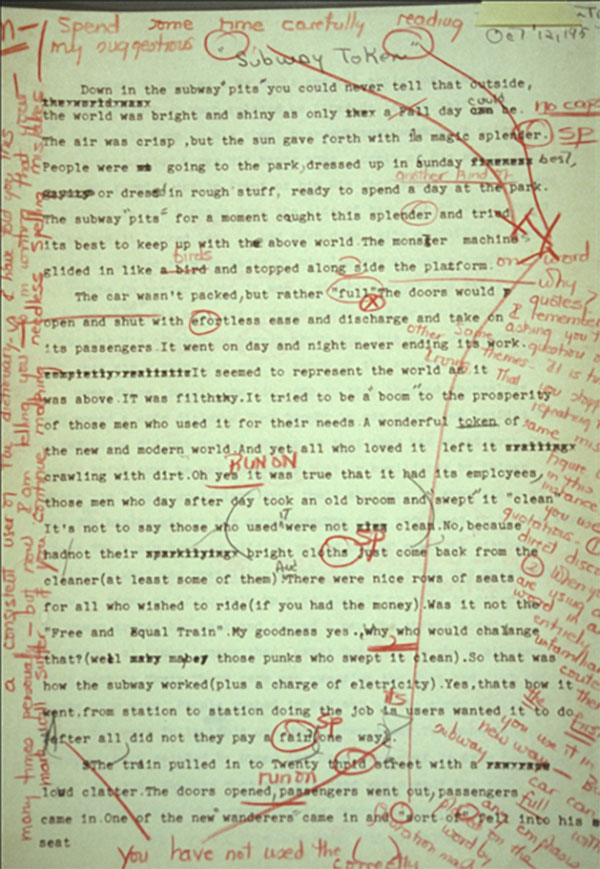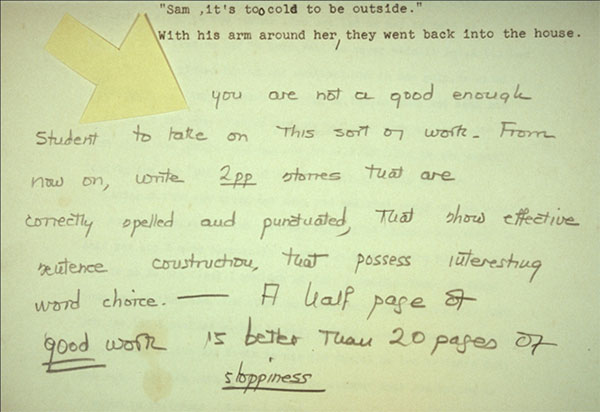 I had never heard of Beacon College. It was founded in 1989 and was the first college in the country accredited to award bachelor degrees exclusively to students with learning disabilities, ADHD, and other learning differences. Their mission: knowing that given the right environment, support, and tools, all students can succeed. It’s located in Leesburg, Florida.
I had never heard of Beacon College. It was founded in 1989 and was the first college in the country accredited to award bachelor degrees exclusively to students with learning disabilities, ADHD, and other learning differences. Their mission: knowing that given the right environment, support, and tools, all students can succeed. It’s located in Leesburg, Florida.
I recently came in contact with them when they asked me to contribute a talk about my life as a writer, a recorded talk, one among many, from folks who have struggled with learning, who struggle with writing.
Why me? I’ll tell you.
I was born a twin, in the City of New York. I had an older brother. My father was a psychiatrist, my mother a social worker. Smart people. She, in particular, was very much engaged with her children’s’ education.
She read to us every night, helped us establish our own libraries, and as soon as possible I was allowed to walk to the local public library and choose my own reading. I became an early and voracious reader.
I was also a devoted listener of radio—this before TV became ubiquitous. Which is to say, I was constantly listening to stories.
My siblings must have shown their brightness at an early age. I, on the other hand, must have revealed some learning difficulties. At some point (I have no idea when) I was tested, and something was determined. What that something was, I was never told. Nor, to the best of my knowledge, were my teachers informed. But my mother arranged that my sister and I were always in the same class in our neighborhood elementary public school. I suspect that was intended to help me get through. The actual result was, when called upon in class, and I could not supply a right answer, teachers would turn “to my smart sister” to get the right answer.
No surprise. I was never a very good student and was bored with school.
I went on to a city high school, a school with five thousand boys. At the end of the first marking period, I had failed all five of my classes. My parents informed me I would be transferring to a small private school, whose student population numbered about one hundred and twenty-five. I was much happier there. But at the end of my second year the English teacher informed my parents that I was “the worst student he ever had,” and that if I were allowed to return to the school (not a given) I would need to be tutored over the summer. I was also required to learn to type—because my handwriting was so bad.


That’s what I did. The tutor, a teacher friend of my parents, changed my life. Prior to my coming to her, she asked to see samples of my writing. When I first went to her, she said something that no one had ever said to me before: “You are an interesting person. If you wrote better, people would know that.”
Never mind that the people I wished would find me interesting were the girls I had crushes on, her words made me want to write better. Moreover, my audience, so to speak, was not just teachers, but other people.
All my intellectual energy soon went into becoming a writer. What I wanted to write were Broadway plays.
It was an inspired choice. Living in NYC, the center of American theatre, I could see many plays, and in those days, tickets were rather cheap. I went often. Writing plays meant writing dialogue, and since people often speak ungrammatically, I could always say, “That’s the way the character talks.” Moreover, writing a play means lots of open spaces on a page, so I could better see what I was writing.
So it was that in a diary I kept during my senior year—the only time I’ve done that—on March 15, 1955, it reads: “I’ve made up my mind. I’m going into the theatre.” What did that mean? I had decided to be a writer.
2 thoughts on “Becoming a Writer, Part One”
As a fan, but as a teacher (50 + yrs) and tutor (plus studied extensively after my B.S. degree: cognition, brain research, teaching, innovation, psycholog, and history of school amounting to two M. S. degrees and an ABD, the Ed. D. variety, in Reading/literacy, I find your story FASCINATING and can’t wait for the next part (s). Potential, alternative methods, customized or individualiced teaching are critical. One size schooling does not work well for many children.….can’t wait to read more.
I love it! Can’t wait for part 2